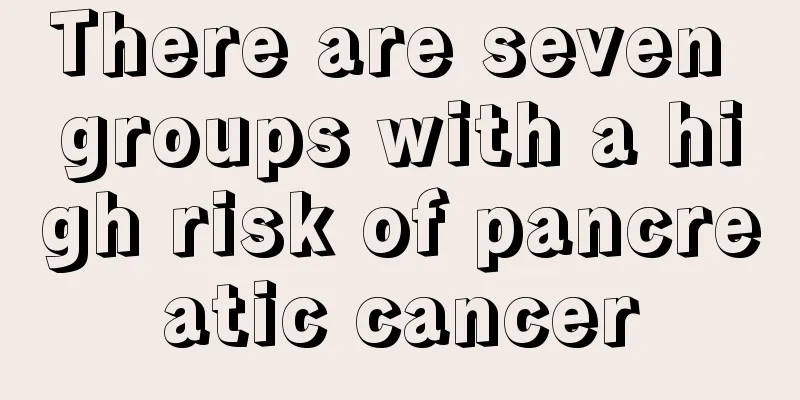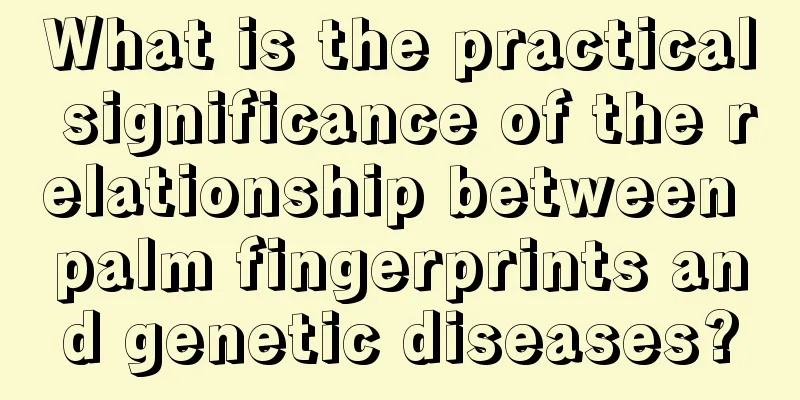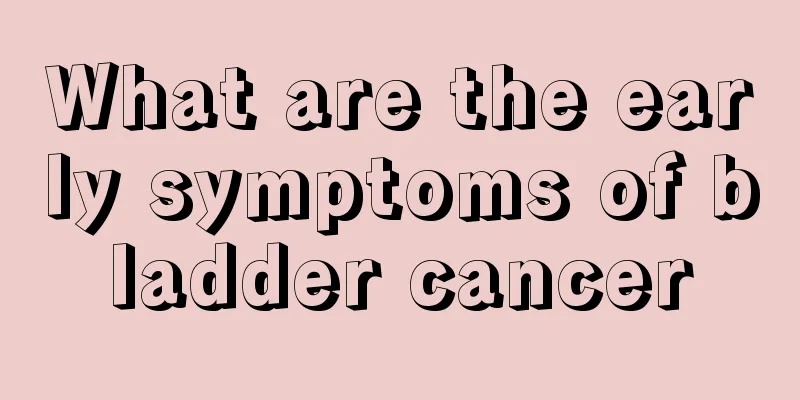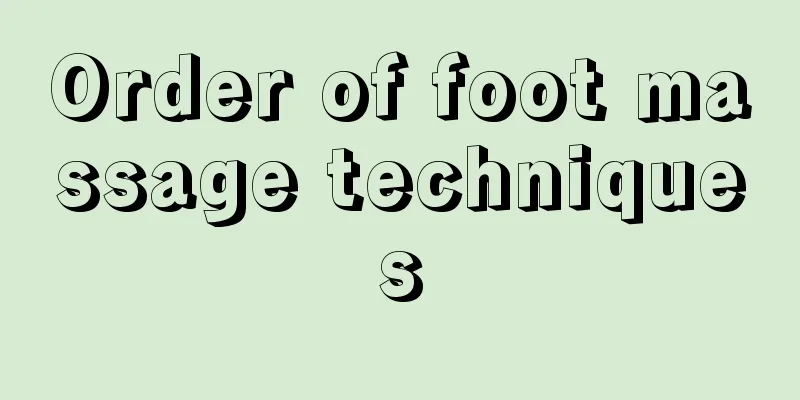There are seven groups with a high risk of pancreatic cancer

|
Recently, the incidence of pancreatic cancer has remained high, and there are some people around us who are at high risk of pancreatic cancer. So, who are the people at high risk of pancreatic cancer? Next, let the experts introduce you to the people at high risk of pancreatic cancer. 1. People who are at high risk of pancreatic cancer are long-term heavy smokers. Smoking is a relatively clear risk factor for pancreatic cancer. Studies have shown that long-term heavy smokers have a 2 to 2.5 times higher risk of pancreatic cancer than non-smokers, and the age of onset will be 10 to 15 years earlier. The longer you smoke and the more you smoke every day, the higher your risk of pancreatic cancer. 2. Excessive intake of sweets, meat, and fried foods, and insufficient intake of vegetables, fruits, and whole grains. Studies have shown that people who love to drink sugary drinks have a 90% higher risk of pancreatic cancer than those who do not drink sugary drinks. People at high risk of pancreatic cancer include those who consume too much high-fat, high-protein foods such as fish and meat, which stimulate the gastrointestinal tract to release some hormones and increase the sensitivity of the pancreas to carcinogens. After high-temperature frying, the amino acids and proteins in the food will also decompose into heterocyclic aromatic amines that can induce pancreatic cancer. 3. Diabetes. Diabetes is closely related to pancreatic cancer. Long-term elevated blood sugar levels can cause continuous damage to the function of pancreatic β cells, causing chronic stimulation of acinar cells and leading to pancreatic cancer. 4. Chronic pancreatitis. Most epidemiological and molecular epidemiological studies have shown that chronic pancreatitis can develop into pancreatic cancer. 5. Drinking a lot of coffee for a long time can significantly increase the risk of pancreatic cancer. 6. Long-term heavy drinking: This can increase the risk of pancreatic cancer by about 5 times. 7. People with a family history of pancreatic cancer are one of the high-risk groups for pancreatic cancer. The above is an introduction to the high-risk population for pancreatic cancer. It is for your reference only. If you have early symptoms of pancreatic cancer, please go to a regular hospital for examination in time. In addition, if you have any questions about the high-risk population for pancreatic cancer, please consult online experts! |
<<: The reason why liver cancer is difficult to detect early
>>: Skin changes usually occur after breast cancer appears
Recommend
What is sinus bradycardia?
Many people are unfamiliar with sinus bradycardia...
What is the chance of bladder cancer recurring after surgery?
The chance of recurrence of bladder cancer after ...
Revealed: The real reason for hair loss
There are many reasons for hair loss. The most co...
What glasses should I wear for astigmatism
Astigmatism is mainly caused by not paying attent...
How does traditional Chinese medicine treat upper gastrointestinal bleeding in liver cancer? Cancer patients recommend a good prescription for treating liver cancer
Cancer patients recommend a good treatment for li...
Does hemisection of the thyroid cancer require lifelong medication?
Hemisection of thyroid cancer generally refers to...
What is the principle behind hemorrhoids falling off after injection?
There are generally two reasons why hemorrhoid cr...
How to treat lung cancer after diagnosis
For the treatment of lung cancer, the pathologica...
Is lung puncture biopsy painful?
Lung puncture biopsy is a minor operation, but it...
What are the symptoms of digestive motility diseases
There are several types of digestive motility dis...
How long does it take for herpes blisters to heal
There are many types of herpes, but the most comm...
No need for facial cleanser to improve skin
Some people don't need to wash their faces wi...
Is melanoma related to genetics?
Is melanoma related to heredity? Experts suggest ...
Why can't I get better with my cough
Coughing is a common symptom. Because it is relat...
What happens if you wear wet underwear
The underwear we usually wear is quite special be...









